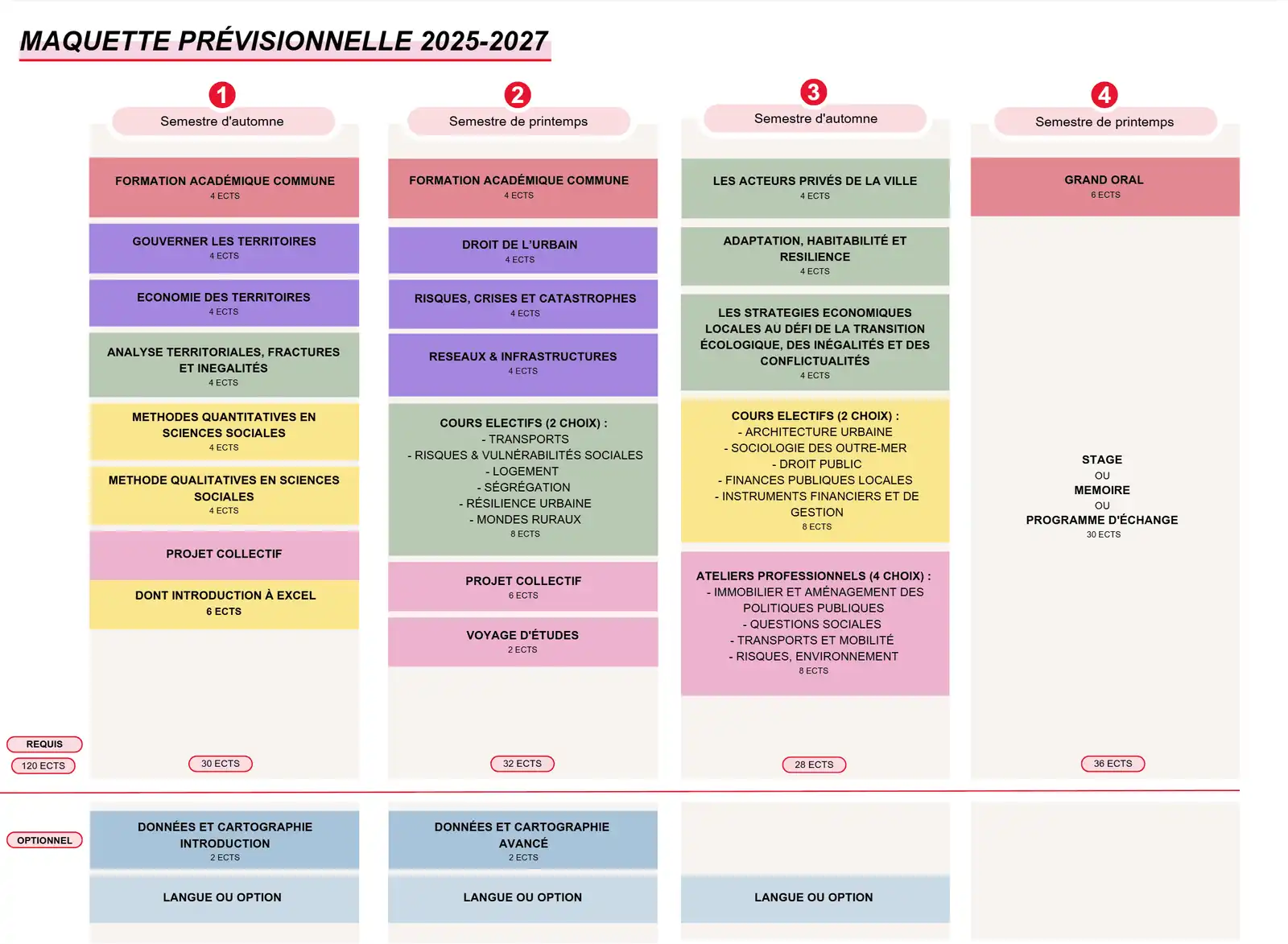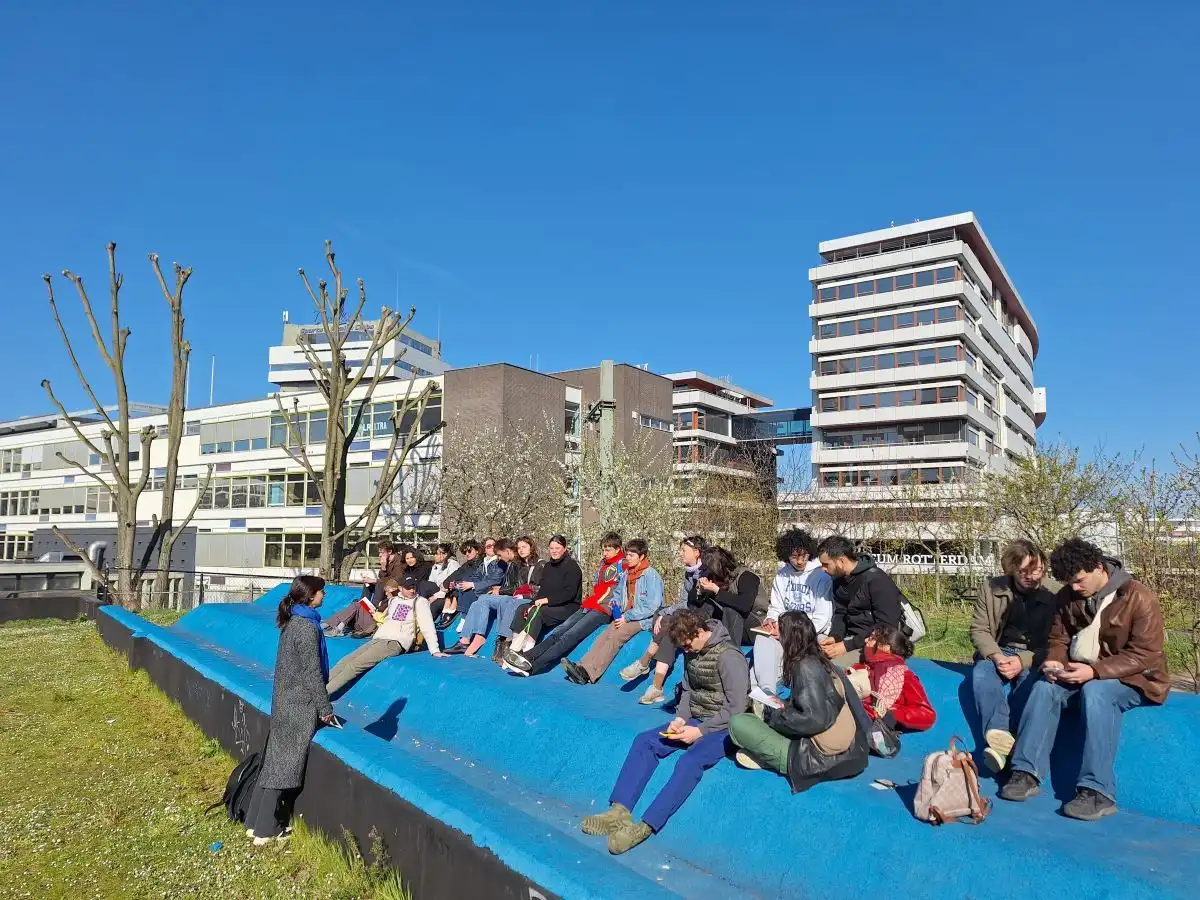
Home>Academics>Master Regional and Urban Strategy
Master Regional and Urban Strategy
Two-year Master's
Programme in French
120 ECTS minimum
Information Sessions: Masters

Discover all the Master's programs and admissions procedures during our many webinars dedicated to future applicants.
Please note: The Master "Regional and Urban Strategy" is taught entirely in French under the title "Stratégies territoriales et urbaines".
Training for urban governance in France & Europe
Created in 2003, the Master in Regional and Urban Strategies (STU) trains students in France and Europe for strategic and operational professions related to cities and territories. The programme prepares students to develop and implement public policies, providing a comprehensive vision of contemporary urban issues.
Objectives and skills
- How to integrate diverse territorial scales (from the region to the neighborhood) and various stakeholders (public/private)
- Multidisciplinary knowledge applied to the challenges of cities and territories (geography, law, economics, sociology, public policies, history, architecture, etc.)
- Skills and specialised tools: finance and management, quantitative methods, data analysis and visualisation, cartography, etc.
- Professionalisation through practical experience: applying knowledge in a real-world context through collective projects, field visits, and study trips

Programme structure

Download the programme structure
First Year
The first year is dedicated to acquiring the fundamentals of cities and regions and their modes of governance, supplemented by optional methodological workshops for leveling up. The second semester focuses on major territorial issues, accompanied by training in local public finances and management tools. Students can choose a optional track: health, lifestyles, digital, risks, etc. The study trip takes place in the second semester.
Throughout the year, students engage in a professional situational exercise: the group project.
Second Year
The second year may be carried out in apprenticeship.
In the second year, the third semester deepens the understanding of public policies and emphasizes professional practice and the development of specialised skills. The fourth semester is dedicated to a professional internship of a minimum of 14 weeks, with six months recommended, with an internship report.
The students make two semesters in alternation between the school and their employer.
The beginning of the apprenticeship contract is possible from June with the following pace:
Third semester: September to December: 3 days at Sciences Po, 2 days with the employer.
Fourth semester: January to May: 3 days with the employer, 2 days at Sciences Po.
Exclusive of the course periods, apprentices work full-time with the employer.
This programme is proposed in partnership with the CFA Formasup (FR).
Study trip
First-year Master's students go on a week-long study trip to discover a region and understand its economic, social, environmental, and cultural dynamics. This trip offers a chance to engage with diverse stakeholders, including local elected officials, business representatives, associations, urban planners, and residents, and to explore development projects, infrastructure, third places, and public policies in action.
At the end of the trip, students write a collective report summarising their analyses and proposals on the challenges facing the region they have explored. Discover our latest trips to Rotterdam and Marseille.
Throughout their studies, students do field research on other occasions: during pre-term visits or as part of their group projects.

Course outlines
- First year, semester 1
- First year, semester 2
- Second year, semester 3
- Second year, semester 4
- Second year in apprenticeship, semester 3
- Second year in apprenticeship, semester 4
Note: Curriculum outlines evolve every year to address various needs and developments.
Tracks (optional)
Research track: students who intend to do a PhD can begin a research track in sociology or political science in the second semester of the master's programme.
Students in the STU Master programme can choose a specialization in Risks, Environment & Health starting from the third semester of their studies. This specialization stands out from existing programs by its unique approach, combining an entry point through territories, public action, and politics.
This track provides students with the concepts and tools necessary for identifying, measuring, representing, evaluating, and managing risks and disasters at the territorial level.
Dual Degree in Urban Policy (LSE)
In partnership with the London School of Economics (United Kingdom), the dual Master's programme in Urban Policy allows students to complete their first year in the Sciences Po Regional and Urban Strategy programme and their second year in the "Urban Policy" programme at LSE.
Career opportunities in Urban and Regional Governance
Regional and Urban Strategy graduates go on to work in diverse areas and roles, from operational positions to research & development, consulting, and academic research. Master's graduates are also eligible to take the civil service entrance examinations.
- Which types of organisations? Local government, research & development departments and consulting firms working in France and abroad, urban development and planning agencies, banks, real estate developers, international organisations, research centres.
- Which fields? Public policy, economic development, regional corporate strategy, urban development and services, mobility and transport, housing, social services, sustainable development and regional risk management, research, etc.
More about career opportunities after a Master's degree at the Urban School:
Student testimonial
Contacts
Academic Director: Olivier Borraz
First year
Academic Assistant: Béatrice Susana - Delpech (beatrice.delpech@sciencespo.fr)
Academic Advisor: Camillo Gorleri (camillo.gorleri@sciencespo.fr)
Second year
Academic Assistant: Jérôme Michel (jerome.michel@sciencespo.fr)
Academic Advisor: Irène Mboumoua (irene.mboumoua@sciencespo.fr)







